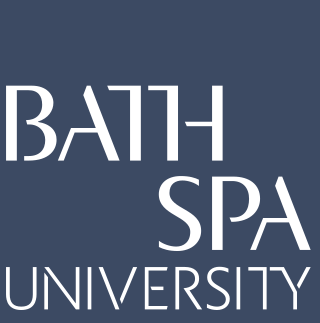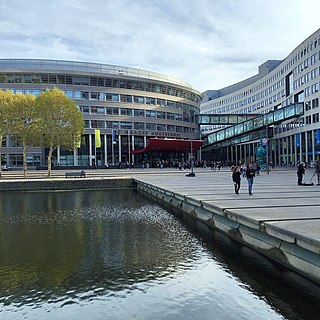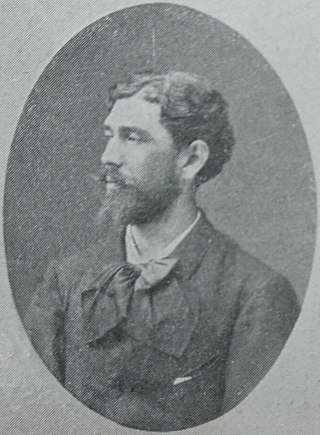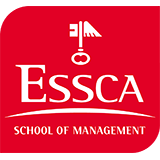AIESEC is an international youth-run, non-governmental and not-for-profit organization that provides young people with leadership development, cross-cultural internships, and global volunteer exchange experiences. The organization focuses on empowering young people to make a progressive social impact. The AIESEC network includes approximately 40,000 members in 120+ countries.
Chaucer College Canterbury is an independent college for Japanese university and high school students. It was founded in 1992 by Hiroshi Kawashima, the Head of the Shumei Foundation, and opened on 13 October 1992, and is located in a prize-winning building featuring a combination of western and oriental architectural styles on the campus of the University of Kent at Canterbury. All students are recruited by the Shumei Foundation, and many are drawn from its educational establishments in Japan, consisting of a small private university and three very successful independent high schools. The College now also offers English language courses for European and international students. This is in keeping with the founding principles that 'World peace in both political and economic spheres depends upon international exchange and understanding'.

St Anne's College is a constituent college of the University of Oxford in England. It was founded in 1879 and gained full college status in 1959. Originally a women's college, it has admitted men since 1979. It has some 450 undergraduate and 200 graduate students and retains an original aim of allowing women of any financial background to study at Oxford. A recent count shows St Anne's accepting the highest proportion of female students of any college. The college stands between Woodstock and Banbury roads, next to the University Parks. In April 2017, Helen King, a retired Metropolitan Police Assistant Commissioner, took over as Principal from Tim Gardam. Former members include Amanda Pritchard, Danny Alexander, Ruth Deech, Helen Fielding, William MacAskill, Simon Rattle, Tina Brown, Mr Hudson and Victor Ubogu.

Galați is the capital city of Galați County in the historical region of Western Moldavia, in eastern Romania. Galați is a port town on the Danube River. It has been the only port for the most part of Moldavia's existence. In 2011, the Romanian census recorded 249,432 residents, making it the 8th most populous city in Romania. Galați is an economic centre based around the port of Galați, the naval shipyard, and the largest steel factory in Romania, Galați steel works.

Bath Spa University is a public university in Bath, England, with its main campus at Newton Park, about 3+1⁄2 miles (5.6 km) west of the centre of the city. The university has other campuses in the city of Bath, and one at Corsham Court in Wiltshire.
Dunmore Lang College is a residential college of Macquarie University in Sydney, Australia. Its motto is "Enriching students’ lives; creating futures".

Gheorghe Țițeica publishing as George or Georges Tzitzéica) was a Romanian mathematician who made important contributions in geometry. He is recognized as the founder of the Romanian school of differential geometry.

The European School, Mol was the third of the thirteen European Schools to be established, and is one of five such schools in Belgium. Founded in 1960, it is located in Mol, in the province of Antwerp.
A homeroom, tutor group, form class, or form is a brief administrative period that occurs in a classroom assigned to a student in primary school and in secondary school. Within a homeroom period or classroom, administrative documents are distributed, attendance is marked, announcements are made, and students are given the opportunity to plan for the day. Such periods also act as a form of Pastoral care, where teachers and administrators provide personal, social or health advice. Homerooms differ in their nature, depending on the country and the specific school.
Education in Romania is based on a free-tuition, egalitarian system. Access to free education is guaranteed by Article 32 in the Constitution of Romania. Education is regulated and enforced by the Ministry of National Education. Each step has its own form of organization and is subject to different laws and directives. Since the downfall of the communist regime, the Romanian educational system has been through several reforms.
St Clare's is a coeducational independent, international day and boarding college in North Oxford, England offering the International Baccalaureate Diploma, a Preparatory IB programme, English language courses, University Pathways, Gap Year study and IB teacher training workshops.

"Dunarea de Jos" University of Galati is a public university located in Galați, Romania. It was founded in 1974.
The University of Medicine and Pharmacy of Craiova is a tertiary educational institution in the city of Craiova, in south-western Romania.

The Hague University of Applied Sciences, abbreviated THUAS, is a university of applied sciences with its campuses located in and around The Hague in the Randstad metropolitan region in the west of the Netherlands. The city is the Dutch seat of government and home to many major international legal, security and peace institutions. Since the university was founded in 1987 it has expanded to four campuses in the near-side cities of The Hague, Delft and Zoetermeer. The main campus in The Hague is located behind The Hague Hollands Spoor railway station by the Laakhaven Canal.

Ion Mincu was a Romanian architect known for having a leading role in the development of the Romanian Revival style. Most of his projects are located in Bucharest, including his main works, the Palace of Justice, the Kiseleff Roadside Buffet, and the Central Girls' School.

The College of Haringey, Enfield and North East London (CONEL) is a college of further and higher education in North London, England. The current college was founded in 2009 as a result of a merger between Enfield College and The College of North East London (Conel). The college has centres in Tottenham and Enfield and draws its students mainly from the boroughs of Haringey, Enfield, and Hackney, Since 2017 the college is a part of Capital City College Group (CCCG) alongside City and Islington College and Westminster Kingsway College.
Answers Solutions Knowledge (ASK) in Morocco is one of the four departments of the Moroccan branch of Association des étudiants en sciences économiques et commerciales. Each year AIESEC chooses a socio-cultural theme globally and implements it locally.
The Adolf-Reichwein-Gymnasium is a coeducational gymnasium in Heusenstamm, Germany, established in 1966. It has about 1400 pupils from ages 10 to 19.

ESSCA School of Management is a French grande école and business school. Historically based in Angers, it now has campuses in Paris, Aix-en-Provence, Lyon, Bordeaux, Cholet, Budapest and Shanghai.
Teaching English as a second language (TESL) or Teaching English to speakers of other languages (TESOL) are terms that refer to teaching English to students whose first language is not English. The terms TESL, TEFL, and TESOL distinguish between a class's location and student population. TEFL describes English language programs that occur in countries where English is not the primary language. TEFL programs may be taught at a language school or with a tutor. The minimum TEFL requirement is a 100-hour course, however, the 120-hour course is strongly recommended because it will help you get hired for the highest-paying teaching position available. TESL and TESOL include English language programs that occur in English-speaking countries. Often, these classes serve people who have immigrated there or whose family speaks another language at home. TESOL is a general term that describes TEFL and TESL programs and is a widely accepted term in the field of English language teaching. TEFL teachers may be native or non-native speakers of English. Teaching English as a second language is regarded as an outdated term because students may speak more than one language before they study English. Students who are learning English in their home country, typically in a school, are EFL students. More generally, students learning English are referred to as ELLs.